We live in times where patriotism has been reduced to celebrating by bursting firecrackers after India wins a cricket match, especially against Pakistan. Waving the tricolor and shouting slogans like ‘Bharat Mata Ki Jai’ and ‘Jai Hind’ have now become symbols of street-corner Nationalism. In this kind of setting, how does one view the life and times of patriots like Bhagat Singh, Chandrashekar Azad, Mahatma Gandhi and Subhas Chandra Bose? Can our expression of patriotism go beyond this mere sloganeering into something more constructive and useful? Many of our own national heroes who believed in living every minute of their lives for the progress of our Nation have claimed to have drawn their inspiration from Swami Vivekananda. Many of us today continue to see Swami Vivekananda as one of India’s greatest Nationalists. How would Swamiji have interpreted Nationalism? One incident that happened in 1897 just before Swamiji went on his second visit to the West throws some light on this.
It was the days when famine raged with all its attendant suffering and Swamiji’s dominant thought was for the victims. The cry of the distressed seemed to transfix his heart and he was completely consumed by the desire to ameliorate their suffering and want. All who heard him talk at that time about the ways of alleviating the lot of the people were amazed by the intensity of his sympathy for his countrymen. There were occasions when pandits, who had come to discuss matters of theology and philosophy, found these matters swept aside in the flood-tide of his compassion, and what to them seemed mundane matters formed almost the entire subject of discussion. For instance, possibly about this time, Pandit Sakharam Ganesh Deuskar, the respected editor of Hitavadi, came to see the Swami with two friends. Learning that one of them came from Punjab, the Swami entered into conversation with him on the needs of that province, especially about the scarcity of food there, and how that had to be met. The talk drifted to the duty of the upper classes to provide the poor with education and to the subject of the betterment of their material and social conditions generally. Before taking leave the Punjabi visitor courteously expressed his regret as follows: “Sir, with great expectations of hearing various teachings on religion we came to see you. But unfortunately our conversation drifted towards mundane matters. I believe it was a mere waste of time.” On hearing this, Swamiji became very serious and said, “Sir, as long as even a stray dog of my country remains without food, my religion will be to feed and take care of them. All else is either non-religion or false religion.” The three visitors were stuck dumb by Swamiji’s flaming words. Years after his passing away, Pandit Deuskar, when relating the incident, said that those words remained ever grafted on his mind and made him realize, for the first time, what true patriotism meant.
On another occasion, a pandit of northern India came to argue with him on the Vedanta. Swamiji was then much depressed at his helplessness in coping with the wide-spread famine. Without giving the pandit any opportunity to discuss the scriptures, he said, “Panditji, first of all try to ameliorate the terrible distress that is prevailing everywhere, to still the heart-rending cry of your hungry countrymen for a morsel of food; after that come to me to have a debate on the Vedanta. To stake one’s whole life and soul to save thousands who are dying of starvation – this is the essence of the religion of the Vedanta.”
At a time when the nation is reeling with issues of moral degradation, corruption, lack of value-based leadership, society rampant with human brutality and forces that constantly seek to divide rather than unite, what we need is the spirit in which Swami Vivekananda interpreted Patriotism and Nationalism. For him these were not merely emotions for public consumption but reflected a deeper, pragmatic conviction that resulted in concrete action. This positive action meant wiping away the widow’s tears and bringing a piece of bread to the orphan’s mouth. It meant waging a battle against poverty, social evils and the constant striving to bring in equity, justice and fairness in all public affairs. A new India can arise only when we translate this vision of Swami Vivekananda into reality.

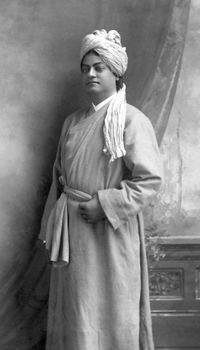
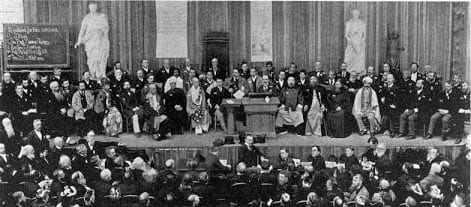
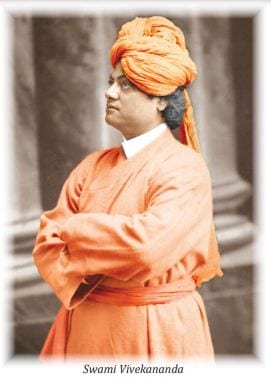
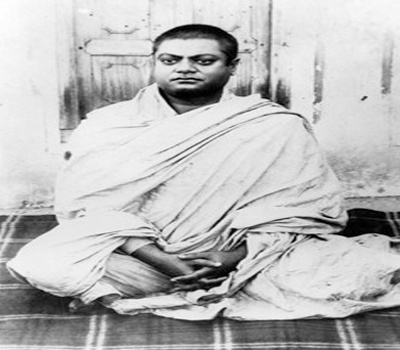

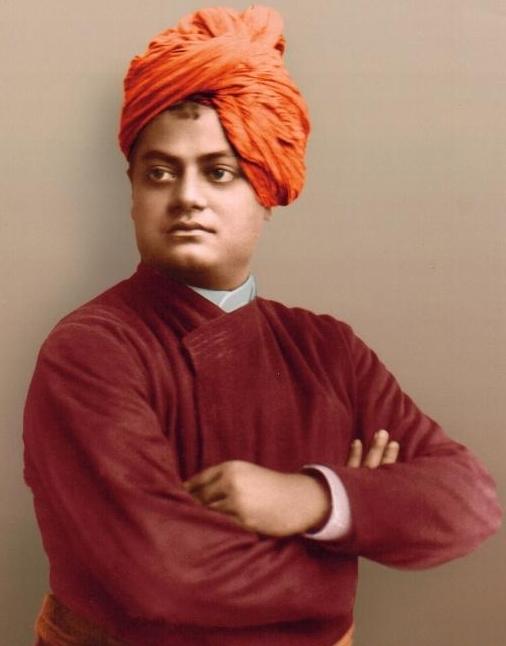
Leave A Comment